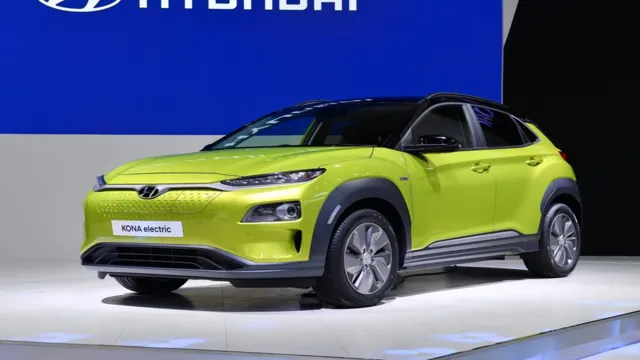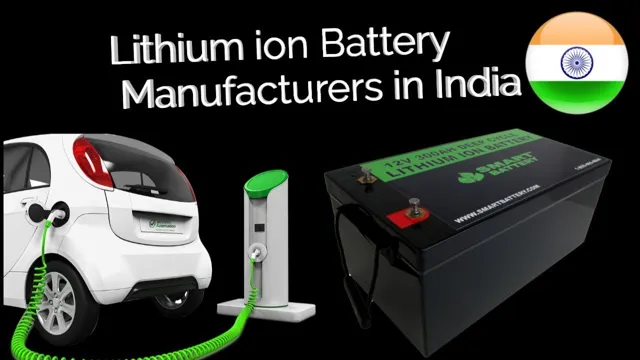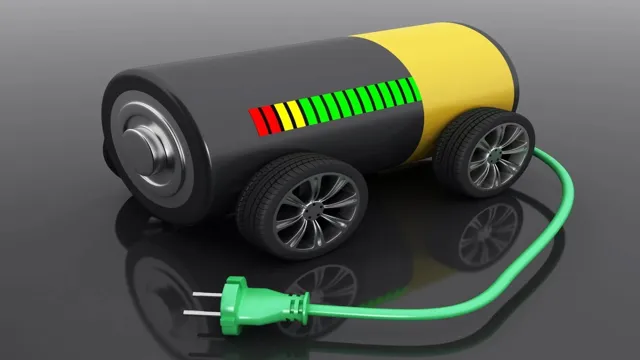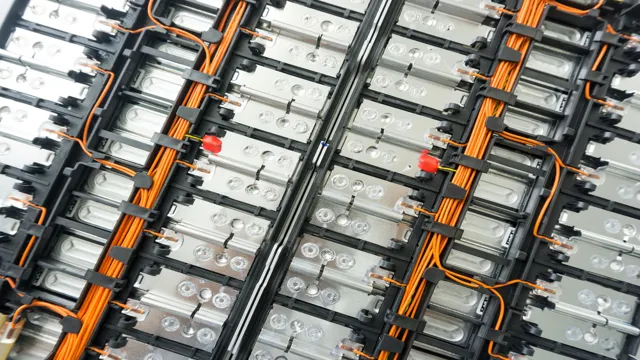10 Best Electric Battery Cars in India: The Future of Sustainable Everyday Driving
India’s transportation industry is going through a massive transformation, with the government’s push towards the adoption of electric vehicles (EVs). Among these, electric battery cars in India have emerged as a popular alternative to traditional fossil fuel-powered vehicles. They are easier on the environment, economical in the long run, and offer a comfortable ride quality.
In this blog, we will take a closer look at the current state of electric battery cars in India, their advantages, and some of the key players in the market. So fasten your seatbelts and join us on this electrifying ride!
Current State of Electric Cars in India
Electric battery cars in India have gained increasing popularity in recent years, as the country makes efforts towards sustainable transportation. However, the current state of electric cars in India is still in its infancy, with only a few options available in the market and limited infrastructure to support them. Although the Indian government has been promoting the use of electric vehicles through subsidies and tax exemptions, the high upfront cost, and lack of charging stations remain a challenge for consumers.
Despite these obstacles, major automakers such as Tata Motors, Mahindra & Mahindra, and Hyundai have introduced electric cars in the Indian market, with plans to expand their offerings. As technology continues to advance and policies favoring electric vehicles strengthen, it is hopeful that electric battery cars will become more accessible and affordable for the masses in India.
Number of Electric Cars on the Road
The current state of electric cars in India is still relatively low, but there has been a significant increase in recent years. As of 2021, it is estimated that there are around 800,000 electric vehicles (EVs) on the road, including both cars and two-wheelers. However, this only accounts for about 1% of the total number of vehicles in the country, which is still dominated by gasoline-powered vehicles.
Despite this, there are several factors that suggest that electric cars will continue to grow in popularity in India, including government incentives, increasing public awareness of environmental issues, and a more affordable range of EV options. With the government’s commitment to sustainable transportation, it is likely that we will see a greater number of electric cars on Indian roads in the coming years.

Brands and Models Available
The availability of electric cars in India has grown considerably in recent years, but there is still a long way to go before they become the norm on Indian roads. Currently, a handful of brands and models are available, including the Tata Nexon EV, MG ZS EV, and Hyundai Kona Electric. However, despite the clear benefits of electric vehicles, there are some limitations to their proliferation in India.
These include a lack of infrastructure for charging stations, as well as higher upfront costs for the vehicles themselves. Nevertheless, there is hope that as more people become aware of the importance of reducing carbon emissions and climate change, the demand for electric cars will continue to rise. Ultimately, a transition to electric vehicles has the potential to create a cleaner, greener future for India and the world as a whole.
Challenges to Electric Car Adoption
The current state of electric cars in India is promising but there are some challenges to their adoption. While the government has announced several incentives for the purchase of electric vehicles, the lack of charging infrastructure and high prices are some of the major obstacles. Awareness is another issue and many people do not fully understand the benefits of electric cars.
Additionally, traditional automobile manufacturers still dominate the Indian market and are slow to invest in electric car technology. Despite these challenges, the Indian electric car market is growing rapidly, with several domestic and international companies expanding their offerings. However, it will take time for electric cars to become mainstream in India, and a concerted effort by the government, manufacturers, and the public will be needed to make it happen.
Advantages of Electric Cars in India
Electric battery cars in India are becoming increasingly popular due to their numerous advantages. One of the most significant advantages is that they are eco-friendly since they emit very few pollutants compared to traditional diesel or petrol vehicles. Not only are they environmentally friendly, but they are also cost-effective in the long run since they require less maintenance, no oil changes or regular servicing like traditional cars.
Electric cars are also a lot quieter and smoother to drive, providing a pleasant driving experience. Furthermore, with the Indian government’s initiatives to promote electric vehicles, owners can benefit from various tax incentives and subsidies. In addition, electric cars offer convenient charging options, including home charging, charging at local stations, and fast charging.
This ensures that the car is always ready to go when needed. With these benefits, it is no surprise that electric battery cars in India are gaining traction and are the future of transportation in the country.
Lower Running Costs
One of the most significant advantages of electric cars in India is their lower running costs. Unlike traditional gasoline-powered vehicles, electric cars have fewer moving parts, meaning they require less maintenance. This translates into lower maintenance costs, and electric cars also consume significantly less energy, contributing to a reduction in fuel costs.
While electric cars may have higher upfront costs than their traditional counterparts, these costs can be offset over time by the money saved in running and maintenance expenses. Moreover, with the Indian government introducing several incentives to promote the adoption of electric vehicles, including tax exemptions, subsidies, and reduced registration fees, the overall cost of ownership of an electric car has become more affordable. Overall, the lower running costs of electric cars in India make them an excellent option for drivers who want to save money and help reduce carbon emissions.
Reduced Pollution and Emissions
Electric cars are becoming more popular in India, and one of the main advantages of these vehicles is the reduced pollution and emissions they produce. With traditional gasoline-powered cars, harmful pollutants are emitted into the air, contributing to air pollution and health issues. However, electric cars create significantly fewer emissions, making them a more eco-friendly option.
This is especially important in India, where air pollution levels are often high due to traffic and industrial activity. By choosing to drive an electric car, individuals can contribute to a cleaner environment and healthier communities. Plus, with advancements in technology, electric cars are becoming more affordable and convenient for everyday use.
So why not consider making the switch to an electric vehicle and do your part in reducing pollution in India?
Government Incentives and Policies
India’s push towards electric mobility has resulted in several policy measures and incentives to promote the adoption of electric cars. One significant advantage of electric cars in India is the reduction in air pollution levels, which is a major concern in the country. Additionally, electric vehicles are exempt from certain taxes and fees, making them cost-competitive compared to traditional fuel cars.
Moreover, the government has announced various schemes, such as the Faster Adoption and Manufacturing of Electric Vehicles (FAME) scheme, which provides subsidies for electric vehicle purchases. Furthermore, the Indian government has mandated that all new vehicles must be electric by 2030, which creates a massive market opportunity for EV manufacturers and suppliers. Overall, incentives such as tax benefits and purchase subsidies, coupled with the government’s push for electric mobility, make electric cars a compelling proposition for Indian customers and contribute towards a cleaner and more sustainable future.
Future of Electric Cars in India
The future of electric battery cars in India is looking incredibly promising. With the Indian government’s goal of having 30% of all vehicles on the road be electric by 2030, there has been a significant increase in demand for eco-friendly and efficient electric cars. With the support of the government, more charging stations are being built across the country, making it easier for electric car owners to charge their vehicles.
Additionally, various car manufacturers such as Tata, Mahindra, and Hyundai have introduced electric car models in the Indian market, making it more accessible for consumers. Furthermore, with rising fuel prices, the economic benefits of owning an electric car become increasingly apparent. The electric battery cars in India are not only helping to reduce pollution but also saving consumers money in the long run.
As the technology improves and the infrastructure grows, it’s exciting to see what the future of electric cars in India holds.
Expected Growth and Investment
When it comes to the future of electric cars in India, the anticipated growth and investment are quite promising. The Indian government has set a target of achieving 100% electrification of public transportation by 2030. This ambitious goal is driving the growth of the electric vehicle market in India.
With a growing awareness of environmental issues, Indian consumers are also showing increased interest in electric cars as a viable alternative to traditional gasoline-powered vehicles. Major automobile manufacturers such as Tata Motors, Mahindra & Mahindra, and Renault are investing heavily in the development of electric vehicles to capitalize on the growing market demand. The government of India is also offering incentives to both manufacturers and consumers to promote the adoption of electric cars.
With all this support and investment, it’s clear that the future of electric cars in India is quite bright.
Upcoming Electric Car Launches
The future of electric cars in India is looking bright, with numerous upcoming launches on the horizon. Automakers such as Tata Motors, Mahindra Electric, and MG Motors are set to release a range of electric vehicles in the coming months, offering Indian consumers an eco-friendly alternative to traditional gas-powered cars. Not only are electric cars better for the environment, but they also save drivers money in the long run on fuel costs.
Additionally, the Indian government has introduced incentives for electric vehicle buyers, such as reduced taxes and registration fees, further promoting the adoption of these vehicles. It’s exciting to see the rapid advancements in technology and infrastructure that are making electric cars a viable option for people all over India. With so many electrifying options on the horizon, the future of transportation in India looks to be an electrifying one!
Conclusion
In the race towards a more sustainable future, electric battery cars are the champions of clean energy in India. From reducing carbon footprint to bringing down fuel costs, these wheels of the future are paving the way for a greener and brighter tomorrow. With the Government’s push towards electric mobility and the growing awareness among consumers, we can expect to see more and more electric cars zooming down our streets.
So, let’s fasten our seat belts and get ready to ride the wave of change towards a cleaner and brighter tomorrow!”
FAQs
What is the current market share of electric battery cars in India?
According to recent statistics, the market share of electric battery cars in India is less than 1%.
What are the major challenges faced by electric battery car manufacturers in India?
The major challenges faced by electric battery car manufacturers in India include high production costs, lack of infrastructure for charging, and low consumer awareness and acceptance.
Are there any government incentives for buying electric battery cars in India?
Yes, the Indian government offers incentives such as tax rebates, subsidies, and free parking to promote the use of electric battery cars.
Which are the top-selling electric battery cars in India?
Currently, the top-selling electric battery cars in India include Tata Tigor EV, Mahindra e-Verito, and Hyundai Kona Electric.




